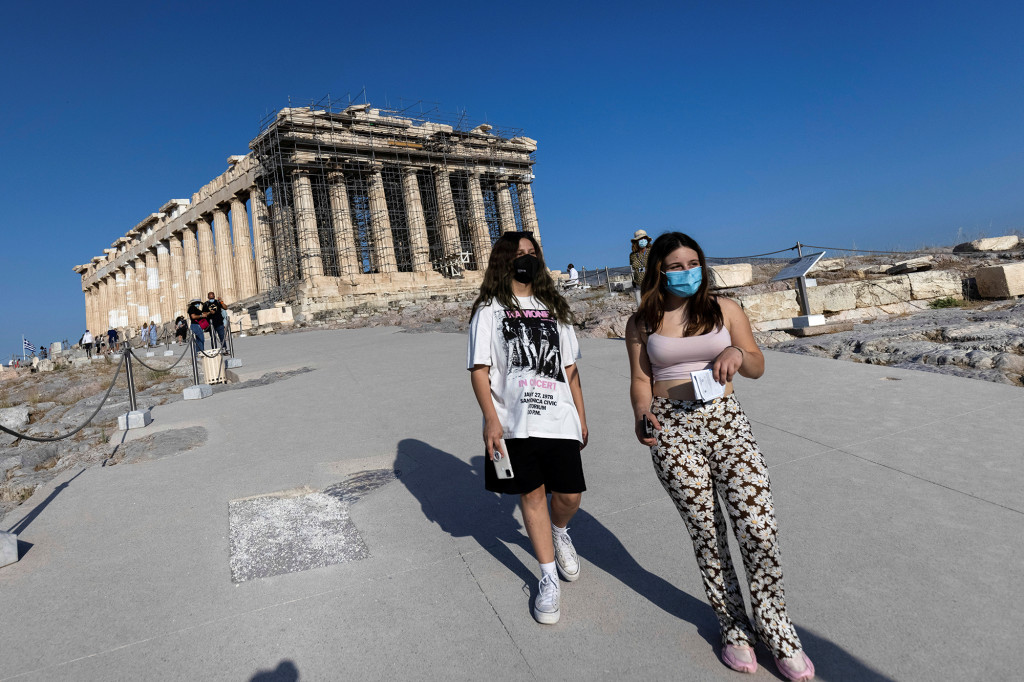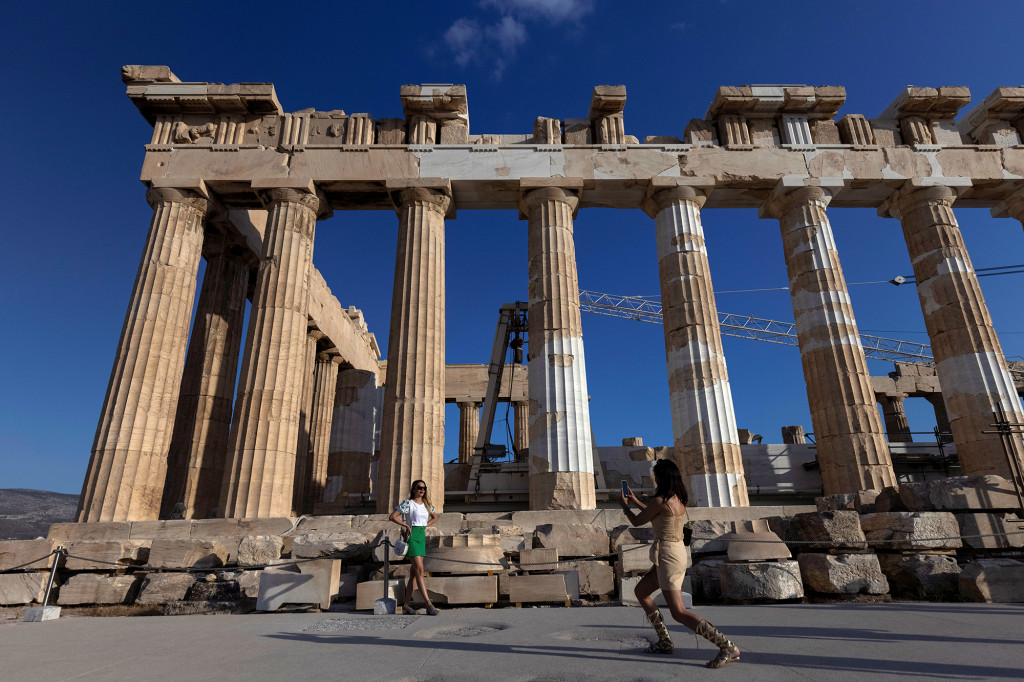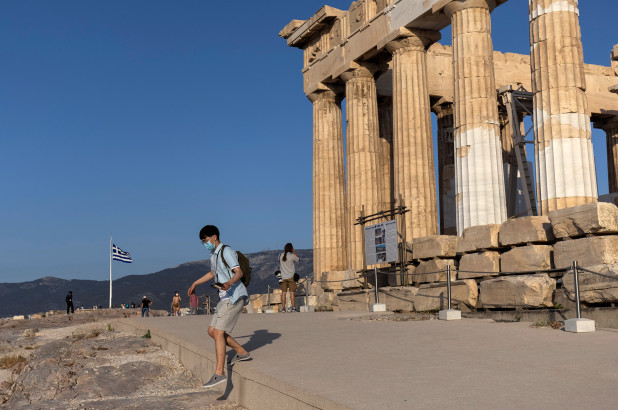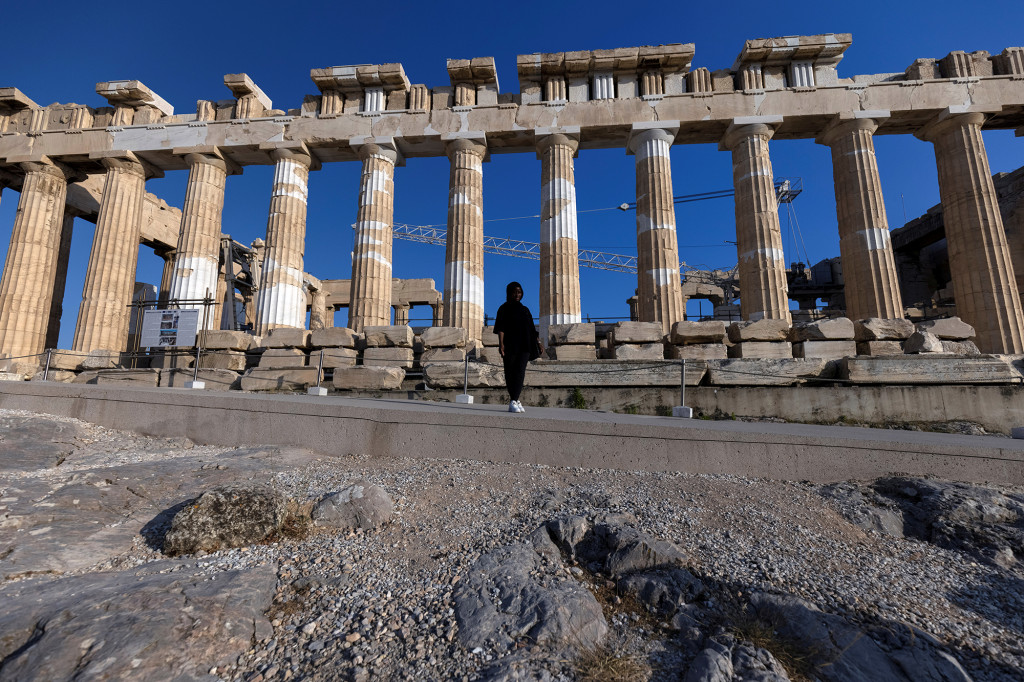A new concrete pathway to facilitate wheelchair access to the Acropolis in Athens has continued to fuel a row between authorities aiming to broaden access to Greece’s most famous ancient monuments and critics who say it ruins the classical harmony of the site.
Greek opposition leader, Alexis Tsipras, demanded recently that the conservative government “stop abusing our cultural heritage,” saying the changes would amount to “changing the landscape” of a world heritage site.
But Culture Minister, Lina Mendoni, defended the development, which was approved by the Central Archaeological Council (KAS), the body which oversees the Acropolis complex that includes the Parthenon, a 5th century BC temple to the goddess Athena.
READ MORE: ‘Just a way to fit more tourists’: Archaeologists outraged at planned renovation of Acropolis.

“I have seen people in wheelchairs who came up for the first time and felt happy,” Mendoni told reporters during a visit to the site on Tuesday.
“I think this is something that should also make us particularly happy because to give joy to people is perhaps just as significant as the protection of our cultural goods.”
Prior to the pandemic, about 3.5 million tourists made the ascent to see the Acropolis, the country’s most visited site.
In the six months that the temples were closed to the public on account of COVID-19, a new lift capable of carrying two wheelchairs at a time was also installed on the rock’s northern flank, replacing an older elevator that had ceased to operate years ago. That, too, has been criticised as a modernist eyesore.
READ MORE: Greek PM inaugurates new disabled-friendly pathways and lifts for Acropolis Hill.

Architect and current head of the Acropolis Monuments Conservation committee, Manolis Korres, even has plans to overhaul the ancient citadel’s majestic gateway, or Propylaia.
According to The Guardian, Korres hopes to reinstate a Roman staircase that would both broaden the entrance, correct previous erroneous interventions and return it to some of its original form.
In response to these alterations, more than 3,500 signatories have endorsed an open letter on the online activist network Avaaz calling for the pathways to be removed and other projected changes to be cancelled.
READ MORE: Greece’s Culture Ministry slammed for laying cement on sections of the Acropolis.

Dr Tasos Tanoulas, until recently director of restorations at the Propylaia, also deplored the decision to cover so much of the rock’s face with reinforced concrete. He told The Guardian the move would lead inexorably to “degradation of the natural landscape and a devaluation of the rock as a natural monument in its own right, as a natural fort.”
But the changes have also won praise, and according to Korres, have the added advantage of being ‘reversible.’ The new walkway, a grey concrete track, is laid over a synthetic membrane that protects the ancient stones underneath and permits easy removal.
Tour guides also gathered around the monument’s ticket booths on Wednesday and agreed the new pathways were overdue.

“There are ambulances up here at least four times a week,” Athina Pitaki, who has been guiding visitors around the site since 1978, told The Guardian.
“I’ve been up here long enough to see all the changes and in reality it’s much better now. It hasn’t affected the monuments. They’re still as impressive as ever and for the first time people can enjoy them without always fearing they’re about to fall.”
Only time will tell what the final outcome of this raging debate will be.
Source: The Guardian.


